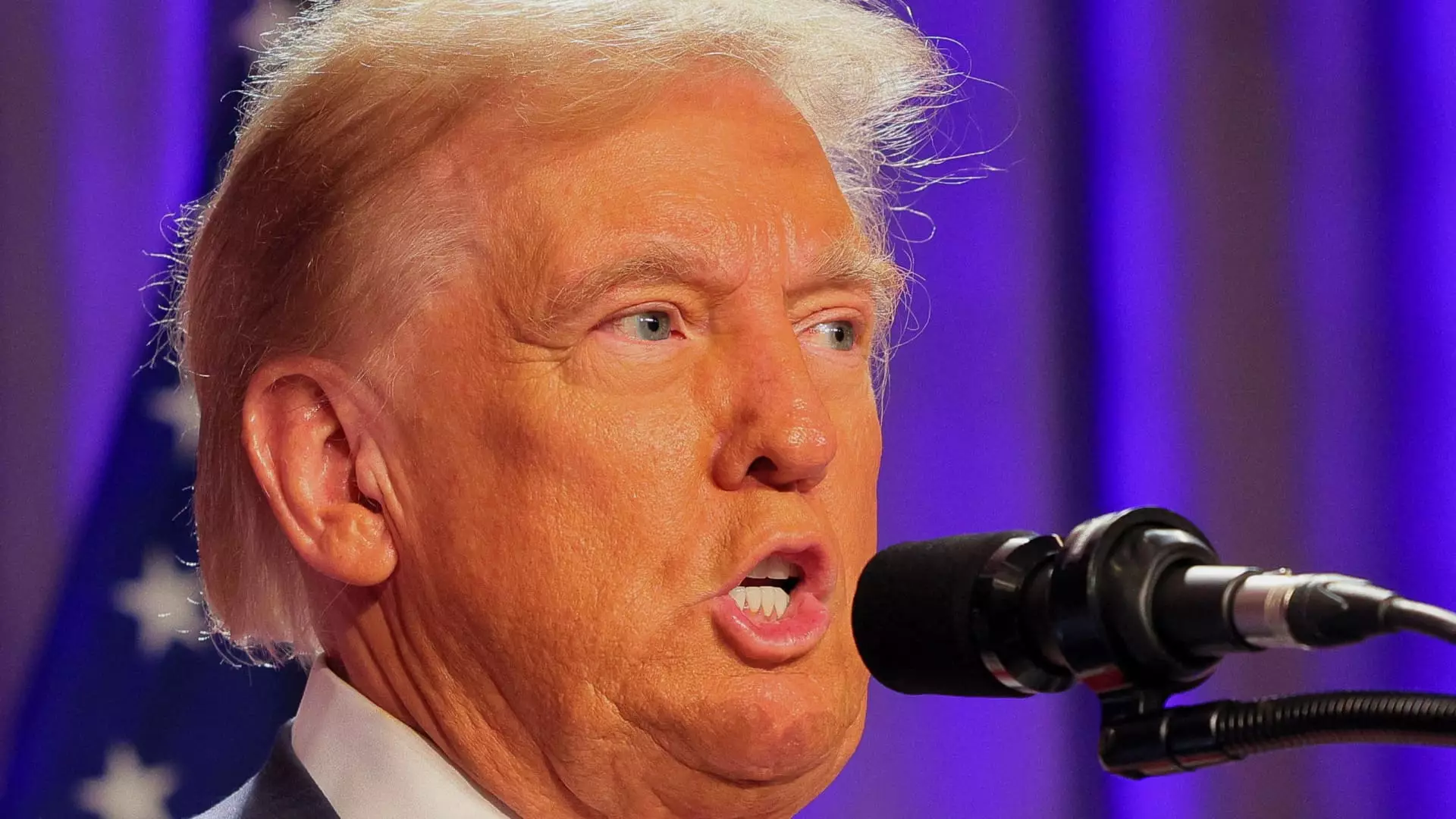In a recent interview with NBC’s “Meet the Press,” Donald Trump, the president-elect, voiced significant changes he envisions regarding U.S. foreign policy, particularly concerning military aid to Ukraine. Trump underscored his belief that the burden of military support should be more evenly shared between Europe and the United States. As he prepares to take office, his comments illuminate a potential re-evaluation of the U.S.’s commitment to European defense alliances and its role in international conflicts.
A New Perspective on Military Aid to Ukraine
Trump’s assertion that Ukraine could see a reduction in military assistance once he assumes the presidency marks a sharp departure from the current administration’s approach, which heavily invested in Ukraine since the conflict with Russia escalated in February 2022. During his interview, Trump emphasized the disparity in financial commitments between the U.S. and European nations, stating, “We have $350 billion, and Europe is in for $100 billion. Why isn’t Europe in for the same as us?” This line of reasoning suggests a more transactional view of international alliances where he believes that financial responsibility should not fall predominantly on the U.S.
Such comments reflect Trump’s longstanding criticism of NATO funding, reminding audiences that European nations must contribute their fair share to defense efforts if they wish to rely on U.S. military support. As a challenger to traditional U.S. foreign policy, this reorientation could affect Europe’s defensive posture and relationships with Eastern European nations amid the ongoing conflict with Russia.
During the same interview, Trump referred to Ukrainian President Volodymyr Zelenskyy as “maybe the greatest salesman of any politician that’s ever lived.” This statement raises questions about Trump’s perception of Zelenskyy’s actual influence versus the practical needs of Ukraine in its fight against Russian aggression. By framing Zelenskyy in such terms, Trump may unintentionally downplay the grave socio-political circumstances Ukraine faces, emphasizing a critique of Zelenskyy’s ability to generate American support rather than the validity of Ukrainian claims for assistance.
This perspective—suggesting that Zelenskyy’s diplomatic skills are the primary drivers of U.S. aid—could provoke backlash from both domestic and international observers who view such support as a moral obligation rather than mere negotiations made by a skilled politician.
Trump reiterated his assertion that NATO allies need to “pay their bills” for the U.S. to remain committed to the alliance. His past threats to withdraw from NATO raise significant concerns. Given the context of a rising Russia and the vulnerabilities exposed by ongoing conflicts, this rhetoric could undermine the very alliance meant to deter such threats. The insistence on equal sharing underscores a broader perspective where the U.S. may seek to prioritize national interests over collective security commitments.
This approach not only complicates U.S. relations with NATO allies but could also embolden adversaries like Russia who might perceive disunity within the alliance as an opportunity to expand influence. An America more focused on transactional relations could inadvertently create power vacuums harmful to global stability.
In a notable shift, Trump called for an “immediate ceasefire” in Ukraine in a post on his social media platform, elaborating that negotiations should begin to resolve the conflict. His words urge a rethinking of U.S. foreign policy, positioning diplomacy as a first course of action rather than military engagement. By emphasizing the necessity of negotiations, he hopes to broker peace quickly and effectively while leveraging relationships with not only Russia but also nations like China.
Trump’s confidence in his connections with global leaders, particularly Putin and Xi Jinping, suggests a belief that he could navigate complex geopolitical waters to end the war—prompting skepticism from critics who caution against relying on personal diplomacy in matters concerning national security.
As Donald Trump anticipates his entry into the presidency, his comments reflect a philosophy that prioritizes the immediate interests of the U.S. and urges equal financial contributions from allies in collective security endeavors. By potentially reducing U.S. military aid to Ukraine while calling for immediate negotiations, Trump’s foreign policy presents a stark shift from past strategies.
While it’s evident that he seeks to reshape America’s role in the global arena, the real challenge lies in balancing U.S. interests with the necessity of cooperative international structures, particularly in an increasingly complicated geopolitical landscape. The implications of these emerging viewpoints will undoubtedly resonate well beyond American borders, shaping the future of U.S. foreign policy and global stability.

